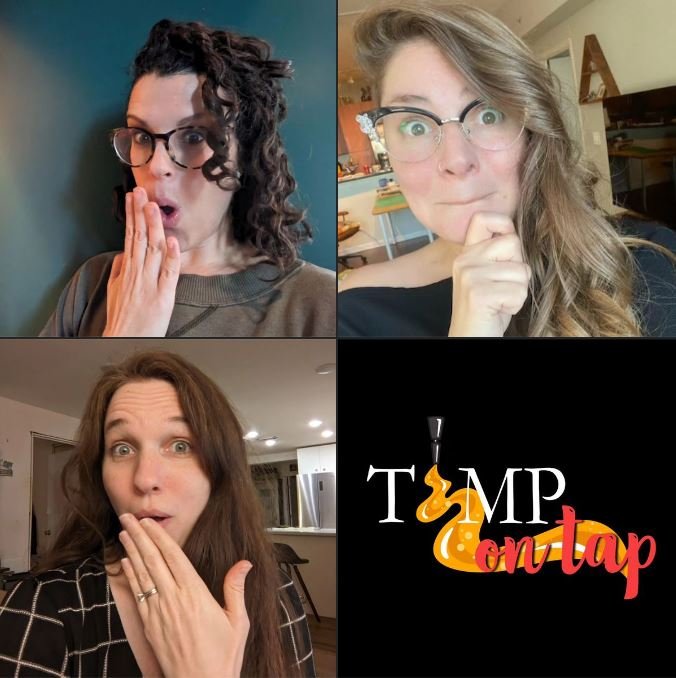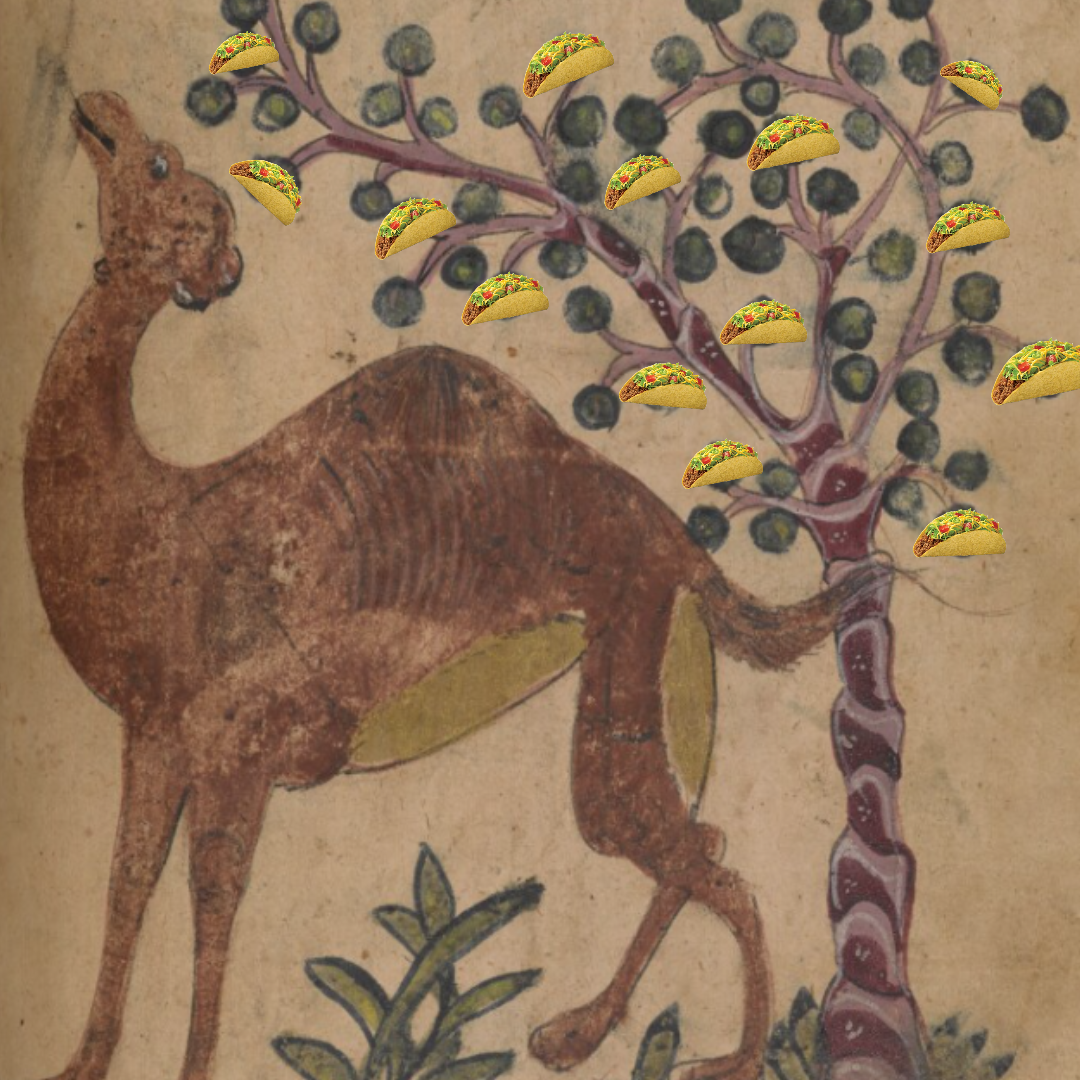Taco Tuesday #116: Dutch Stroop-Tacos
Danny Johnson
Well, yes, we’re late, but last Tuesday was April Fool’s and we didn’t want to disrupt your day of tricky surrealism with straightforward loveliness! Now that we can proceed, let’s go to Belgium and the Netherlands. All the cool kids are! Yes, I’m looking at you, you!
Outside the Amsterdam train station and in other parts of town (and all over the Netherlands), street vendors sell stroopwafels, a popular treat ever since the 18th century. They are as popular as, oh, I don’t know, let’s say… tacos!! So here we go with Dutch Sweet Tacos! Sweet Dutch Tacos? Dessert Tacos?
In honor of this week’s theme, and in honor of a couple of memorable trips with EurailPass in hand, we visit the Lowlands. These days we would call this area the Netherlands, Belgium, and northern France: The demarcations were somewhat more fluid in the 16th and 17th centuries. The relatively tiny area of the Lowlands produced an inordinate number of skilled and creative composers and artists who influenced the fine arts in the rest of Europe for generations.
Dutch Treat: The Golden Age in the Netherlands
April 2 & 3, 2016
We start with two versions of a beloved melody: Mijn hert altyt heeft verlanghen. From what is now northern Belgium, Pierre de la Rue likely had professional associations with Josquin des Prez from an early age. (He is the “Pierchon” mentioned in Josquin’s memorial to Ockeghem, Nymphes des bois.) As a member of the Grande chapelle of the Burgundian-Habsburg court, he traveled extensively as a singer and a composer, and was another of the highly important and influential Franco-Flemish composers of Josquin’s generation.
Mijn hert altyt heeft verlanghen (Pierre de la Rue, c.1460-1518)
Singers
My heart always has desire for you,
My most beloved.
My love for you has captured me,
All yours I want to be.
Before all the common world
No one who hears or sees it can be in any doubt:
You alone has my heart.
Therefore, fair love, do not let me down.
Mijn herteken heeft altyts verlanghen (Benedictus Ducis, a.k.a. Benedictus Hertoghs, c.1492-1544)
Jenifer Thyssen, soloist, with Viol Concert
We follow with another version of the song, this time with instruments and a solo voice, by another composer from Antwerp, Benedictus Ducis.
My heart longs for you
Unceasingly,
my beloved;
You have my heart in thrall:
Let me be your vassal.
It is common knowledge—
No one who hears or sees it can be in any doubt:
That my heart is yours alone:
Therefore, I beg you, forget me not.
Wij comen hier gelopen (Anonymous; Duytsch musyck boeck, Petrus Phalesius, 1572; Antwerp)
Viol Consort
The anonymous piece that follows, Wij comen hier gelopen, is in the same rustic vein as the next piece; though they both sound a little bit like country songs, they both have some nifty imitation and offbeat sections that accentuate the skill of their composers
Bransle Dit le Bourguignon (Anonymous; Harmonice Musices Odhecaton; Venecia, 1501)
Instruments
The bransle Dit le Bourguignon(“Called the Burgundian”) was an anonymous dance that was popular enough to be included in the Harmonice Musices Odhecaton, published in Venice. Thst was a really big deal!
Nu dobbert mijn Liefje op de Ree (Constantijn Huygens, 1596-1687; poem G.A. Bredero, 1585-1618)
arr. D Johnson, 2016
Cayla Cardiff, soloist
With Meredith Ruduski & Stephanie Prewitt
Rarely do we know the names of both the poet and composer of works during this time period, but it is true of our final song of this Taco. Gerbrand Adriaenszoon Bredero was an Amsterdam-born poet and playwright in the Dutch Golden Age. Constantijn Huygens was born in The Hague and was famous as both a poet and composer. The picturesque poetry with its constant references to Greek mythology calls for variation in the accompanying instruments.
Now my Love is floating on the ship, on the restless, rising waves,
On the grand and spacious sea that he, alas! must now go sail.
Sail away, as winds prevail, always think, where e’er you be, on she who loves you.
Oh, had I two eyes like the Sun, that I could survey the whole world,
Or if I could, dear one, follow thee, I would be by thee constantly.
But if it can’t be bodily—For honor doth forbid me that—My soul shall never love deny.
And though I lack Daedalus’s art, who could carry his love through the air,
I’ll guide you with my truest love, my favor and my pleasure merry.
Were I but free from fleshly bonds, my spirit then would go with you
Where now my thoughts do wander.
If I had Medea’s witchcraft, I would be Aeolus on his peaks:
I would put a spell on him that not one little wind would escape him.
There would burst a strong gust from his sack; I would send it into the sails to tighten them,
I would do it with ease.
The wind, the water, and the tide, twinkling stars in their fixed poles:
There became my highest good, my life, my light, my counselor;
O good-hearted God, most famous, O ruler of heaven and earth,
Guard my dear Ceyx.
Alcyone your sweet bride weeps; the heart wants to tear her from sadness.
Because it thunders, storms, and blows your little turtle-dove knows only sorrow.
O Ceyx! O Ceyx! Worthy man!
What heart-pain happens to your little wife, who cannot be away from you.
Now my Love is floating on the ship, on the restless, rising waves,
On the grand and spacious sea that he, alas! must now go sail.
Sail away, as winds prevail, always think, where e’er you be, on she who loves you.
I would really like a stroopwafel about now; maybe I’ll just have a taco! The edible kind, I mean.
Hey what are you up to on Saturday, April 26 at 7:30pm? You might recall that we had an event last year called “TEMP on Tap” where we took early music to the streets and featured a few select TEMP singers and instrumentalists at a local pub for some bawdy songs, drinking songs, and singalongs! It was such a good time, we decided to bring it back! It's gonna be a grand ol' time, rated R, and it’s free to attend with a suggested donation of $20. See HERE for more details!
Thanks for your support, again! We will be back in approximately exactly two weeks with a brand-spankin’ new Taco for you! As always, stay safe, stay sane! We’re trying to help.
Adrienne has some big news for you! See below!
Danny













